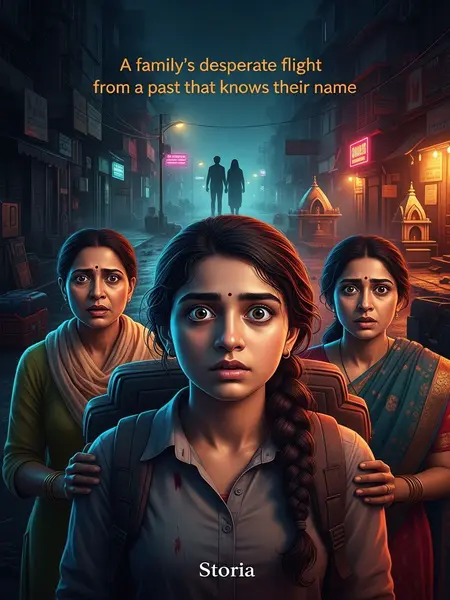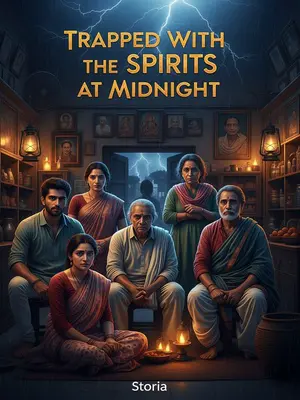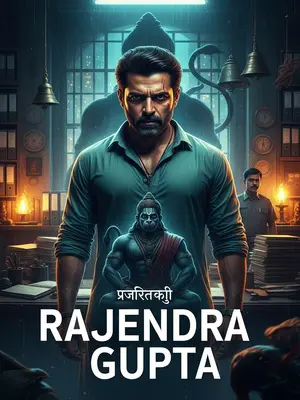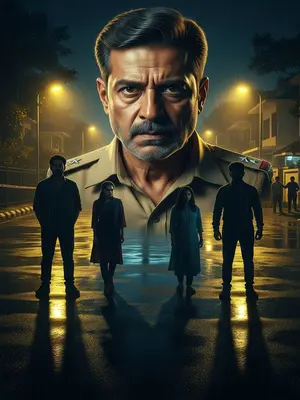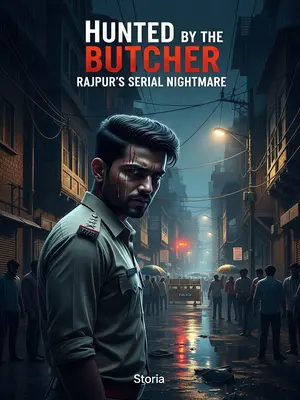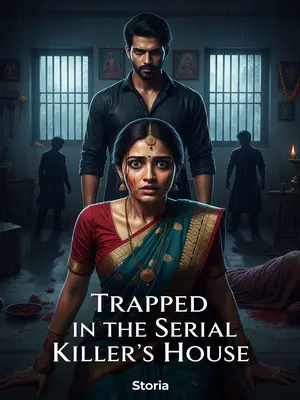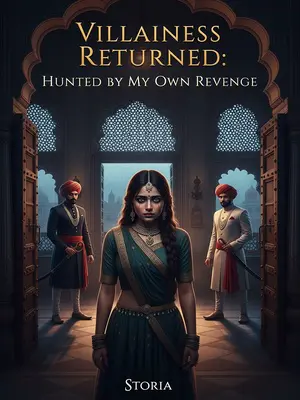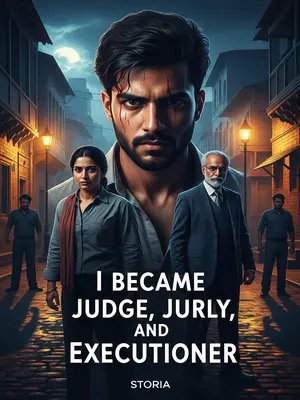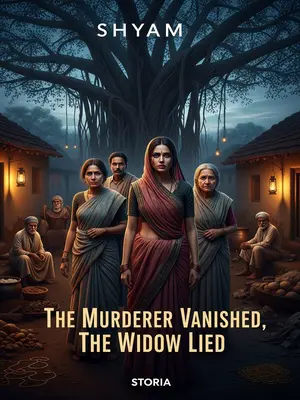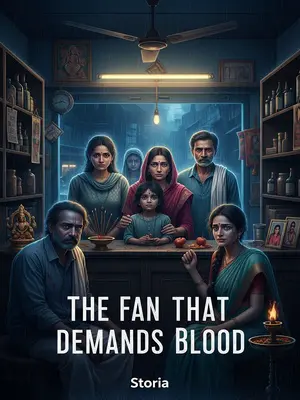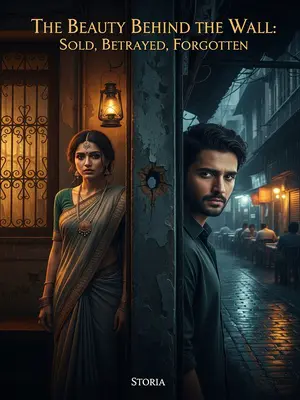Chapter 4: Secrets and Shadows
4.
I was frozen with fear, wanting to scream, but no sound would come out.
My mouth opened, but nothing emerged. It was as if the night itself swallowed my voice. Luckily, the courtyard was in the centre of the village, and Chotu’s scream had alarmed the nearby villagers.
Soon, people came running over.
Their torches and mashals bobbed in the fog, shouting questions. "Kya hua? Kaun hai?"
Women pulled their shawls tight, children clung to their mothers’ dupattas. Someone lit incense and waved it in circles, muttering a prayer to Hanuman for protection. More and more people gathered in the courtyard.
Some were barefoot, others in rubber chappals. The air was thick with panic and the metallic scent of blood. "It’s Chotu! Chotu is missing! We were just playing hide-and-seek here—I heard a scream and then he was gone. There’s so much blood!"
I could barely get the words out, my teeth chattering. Fog was everywhere; nothing could be seen clearly.
The tube light flickered, casting everyone in a ghostly glow. Chotu’s mother clutched the blood-soaked sneaker and fainted from crying.
Her wails echoed off the walls, a sound that still haunts my dreams. Someone called the local police station.
An old man with trembling hands dialled the rotary phone. People were all talking at once—some said there were wild dogs in the fields, others whispered about ghosts.
A group of boys huddled together, shivering. The village pradhan looked at the long, winding blood trail leading toward the banyan grove.
He wiped sweat from his brow, eyes narrowed. "Maine kabhi nahi dekha aisa kuch apni zindagi mein. Sab log, apne sickle, lathi, hammers le lo—aur mashal lekar chalo! Jao, grove ke andar dekhte hain. Baccha aise hi nahi gayab ho sakta!"
His voice rang with authority. "Haan, bacha wapas lana hi hai!"
The men shouted, their voices trembling with fear and determination. Everyone was speaking at once, anger and worry mixing in the air.
Mothers muttered prayers, men spat for luck. At that moment, an old man dipped his finger in the blood, sniffed it, and said slowly,
"Mashal le jao, torch nahi."
Everyone fell silent. I was squeezed into the crowd, following them into the grove.
My hand was gripped tight by a neighbour. The smell of kerosene from the mashals was strong. At first, the blood trail was just a line. The further we went, the more blood there was. Eventually, it became pools.
The ground felt sticky underfoot. Only then did I realise just how much blood a human body could hold.
Somewhere, a woman began to sob softly. People whispered behind me:
"Itna khoon hai—bacha mil bhi gaya toh zinda nahi bachega."
A chill ran through the group. "Itna chota... bechara."
Another voice murmured, "Dadaji ne mashal bola—kya pata sach mein bhoot hai?"
A man replied, "Aisa janwar toh nahi hai jo bachche ko utha ke le jaye. Kuch toh gadbad hai aaj raat. Fog dekho—saalon baad aaya hai. Bhagwan jaane kya hai wahan."
The more they whispered, the scarier it sounded.
I felt like the shadows themselves were listening. We followed the blood trail to the edge of the grove, but there was no sign of Chotu.
The moon was gone, only the flicker of mashals remained. Finally, at the mouth of a small cave near the canal, they found a pile of flesh, and next to it, Chotu’s bloodstained clothes.
A hush fell over everyone. Chotu’s mother fainted again, and men began to shout for the police. When my parents arrived, I was standing in the crowd, clutching a mashal, terrified.
My hands and knees shook. Both my parents were panting, clearly having run all the way.
My mother pulled me into a suffocating hug, her heart pounding against my ear. My father strode up and kicked me hard.
The pain jolted me back to myself. "Tu gadha hai kya? Kisne bola tha raat ko bhaagne ke liye?"
He grabbed my arm, nearly lifting me off the ground. My parents didn’t speak to the villagers or ask about Chotu. They just dragged me home.
We passed our neighbours, their eyes wide with fear and suspicion. First walking, then hurrying, finally breaking into a run.
My slippers slapped against the muddy road. At home, they didn’t say a word. They packed our things and called an auto-rickshaw to the bus stand that same night.
I watched our house fade into the darkness, village dogs barking at our backs. Later, I heard the police searched the grove for days, but found nothing.
Some said the forest itself swallowed the truth. I don’t know what happened after that. I only know that over the years, my father kept sending money to Chotu’s family—always anonymously.
He’d buy money orders at the post office, never using his real name. I sat on the floor, half my face numb from my father’s slap.
The taste of iron on my tongue, the memory of that blood-soaked courtyard too vivid. Suddenly, a thought flashed through my mind.
"Papa, the night Chotu had his accident, saat saal pehle, maine bhi ek kaala saaya dekha tha mujhe wave karte hue."
My father slapped me again.
His hand trembled, eyes wild with fear and regret. "Abhi bhi yaad dila raha hai? Us raat marna tujhe tha."
His words landed like stones in the silent room. Outside, the rain had started again, harder this time. And in the distance, a shadow moved, closer than before.
